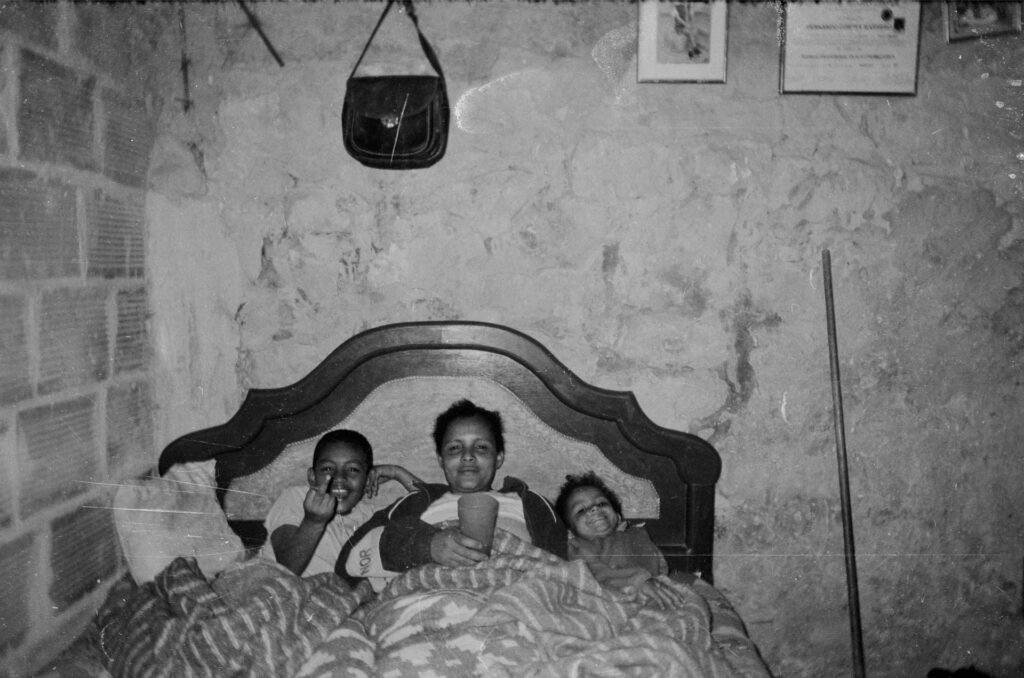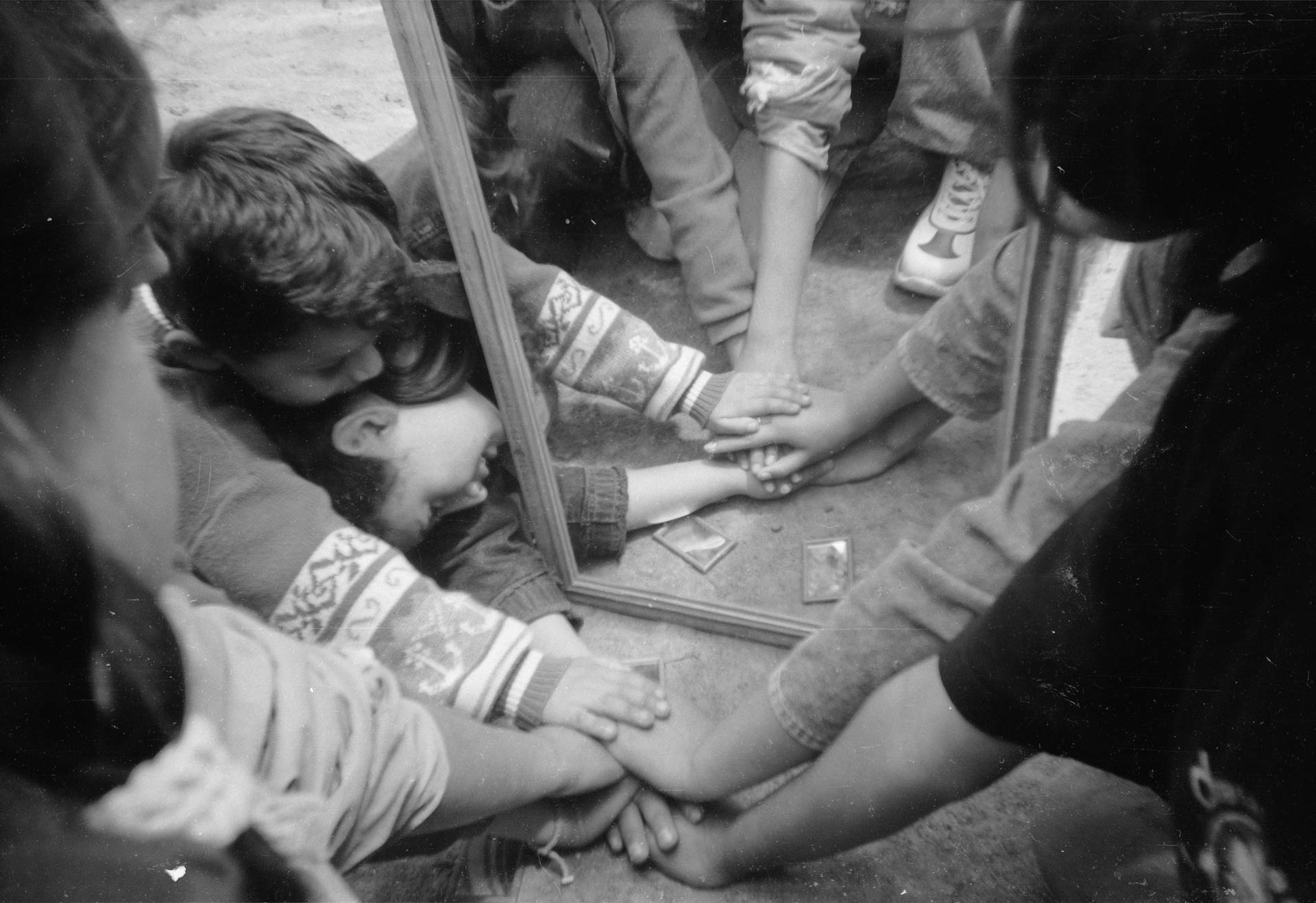Shooting Cameras for Peace
Country: Colombia
Participants: Youth of El Progreso
Here my parents were fighting because my dad had money and didn’t tell my mom and spent it. They’re not fighting anymore.
© Wilson David, ten years old
Disparando Cámeras para la Paz (DCP), or Shooting Cameras for Peace, is a project that taught photography to young people in El Progreso, a neighbourhood on the outskirts of Bogotá that was home to many families displaced by violence in the countryside or who came to the city as economic migrants. DCP was initiated in 2002 by Alex Fattal, who first came to El Progreso as a Fulbright scholar with the support of Nelson Pájaro Mercado, a community leader who ran an informal school in El Progreso. It was subsequently established as a national NGO with a Colombian team that was disbanded in 2008 but revived for a further three years as a community organisation called Disparando Cámaras Cazucá (DCC).
With a darkroom and classroom space in El Progreso, DCP ran regular photography workshops for youth and over the years developed a curriculum which used simple exercises to teach the concept of photosensitivity, moving from pinhole cameras made from old jam jars, cans and boxes to 35mm film photography. The children made photograms, pinhole cameras, self-portraits, wrote photo narratives (stories inspired by their photos) and extensively documented their lives at home, at play and with their families and in their neighbourhood. As children advanced through the program, they would help to teach new children and the DCP team worked in collaboration with community liaisons who were often the mothers of participants. Their work generated extensive media coverage and was exhibited nationally and internationally, including at the UN General Assembly Building New York.

A postcard produced as part of the public art intervention in el Progreso in 2008. © Photograph and design by Shinpei Takeda / the AjA Project
DCP students came from nearly every region of Colombia and multiple ethnic and racial groups. The neighbourhood of informally constructed housing was encircled by a fetid lake and neglected by the state and had limited access to water, education and health services. The families lived precarious lives. Armed actors operated in El Progreso including para-militaries, narco-paramilitaries, guerrillas and local gangs who exerted social control through threats and surveillance and sought to recruit, sometimes forcibly, disaffected youth. For 18-months, DCP was funded by the Dutch organisation War Child as part of their programming to keep young people at risk of recruitment out of trouble by giving them activities to occupy their free time. By the 2010s, as local paramilitaries stepped up their repression of community led initiatives, DCC was forced to relocate after some of the more activist youth started to receive threats.


© Arabelli, 2006
Fattal notes that DCP could do nothing to directly address the structural issues of violence and poverty in El Progreso but that it fostered self-reflection and critical awareness, allowing the students a mode of staking citizenship, and in so doing contributed to the construction of peace through slow cultural work that created the conditions for change. Photography became a powerful cultural intervention for young people who, rather than living in fear of being watched and monitored, took charge of the camera to document their daily lives and loved ones as a form of resistance and play.
For an extensive reflection on the project and ample sample of the students’ works, see: Alexander L. Fattal, Shooting Cameras for Peace: Youth, Photography and the Colombian Armed Conflict / Disparando Cámaras para la Paz: Juventud, Fotografía y el Conflicto Armado Colombiano (Peabody Museum Press, 2020).
I was really distant, really shy… I’ve learnt many things, to develop, to respect the teachers, and I’m learning to be a teacher, to be a teacher’s aide. You mature a bit, yeah, you start liking new things, learning more, not only about photography but also about other things, about sharing and making friends’.


